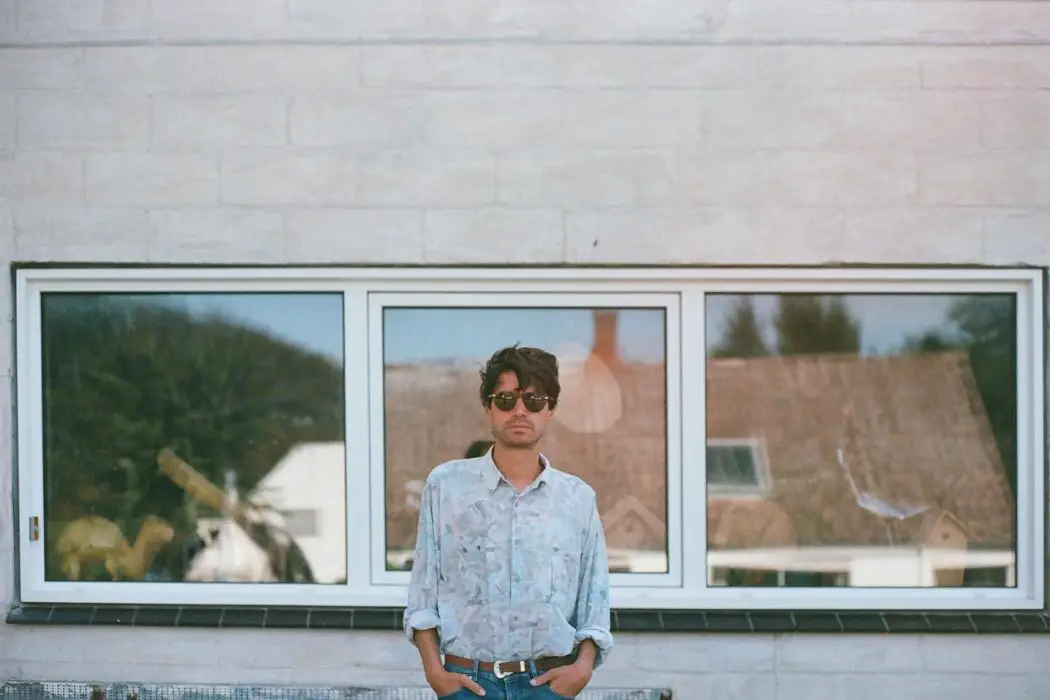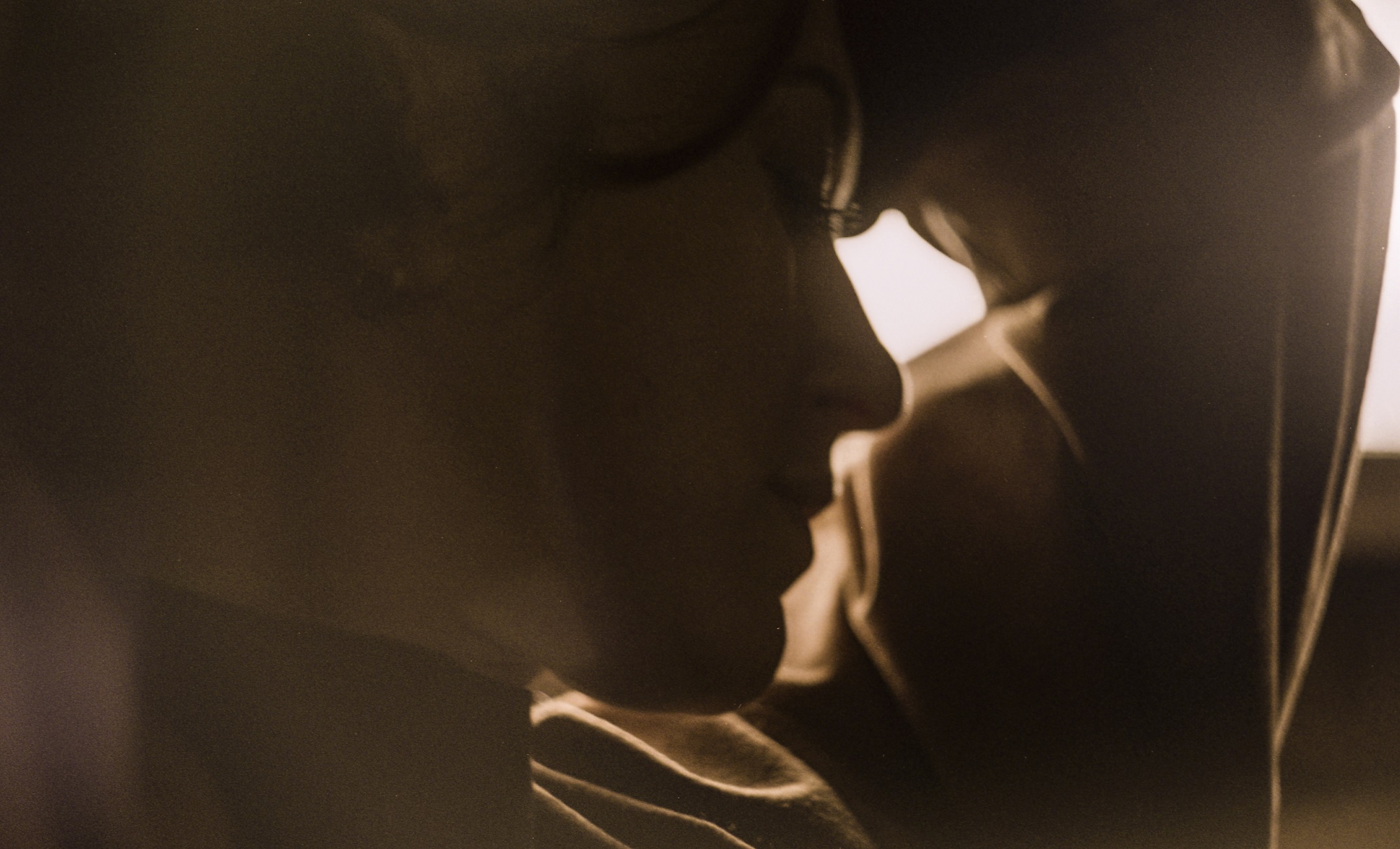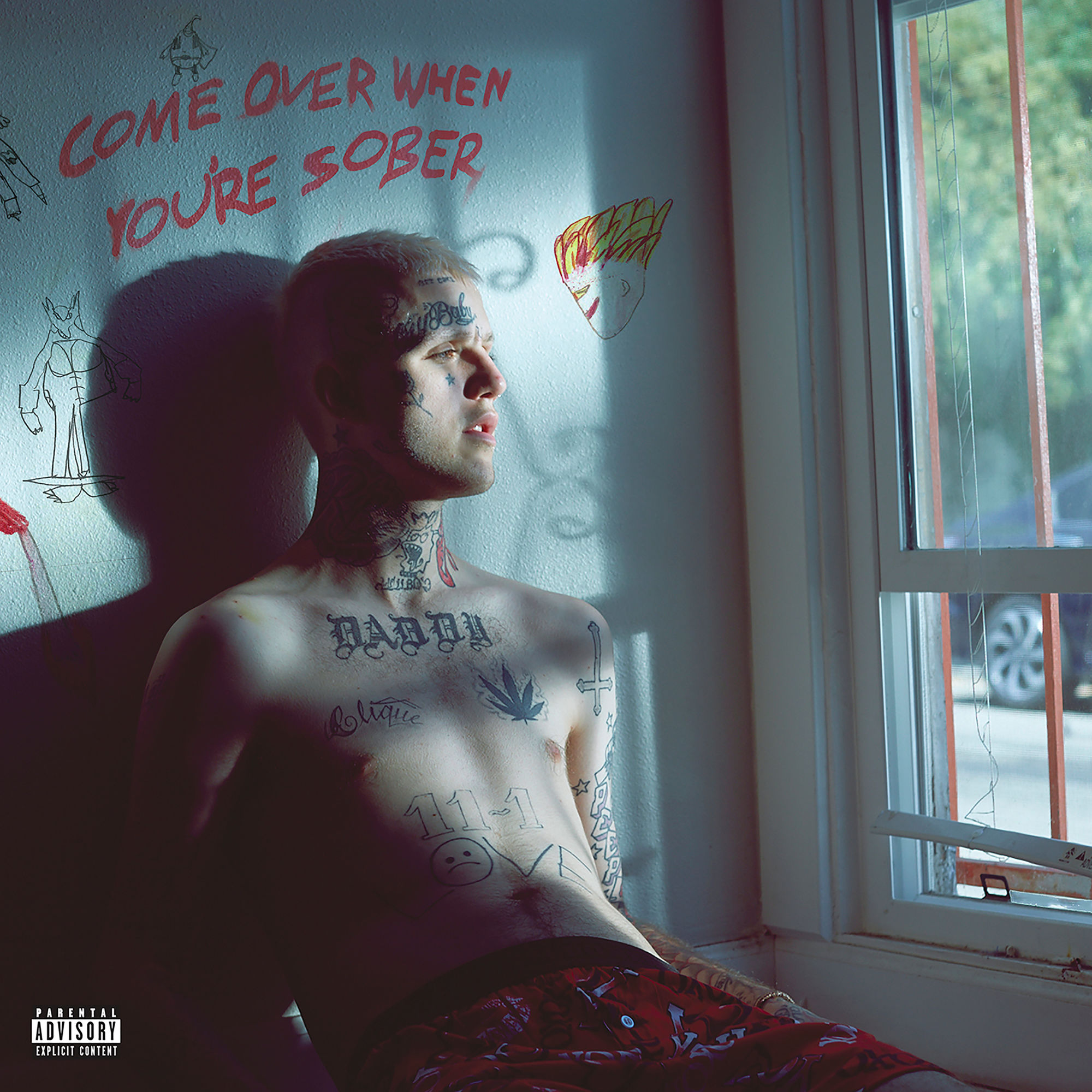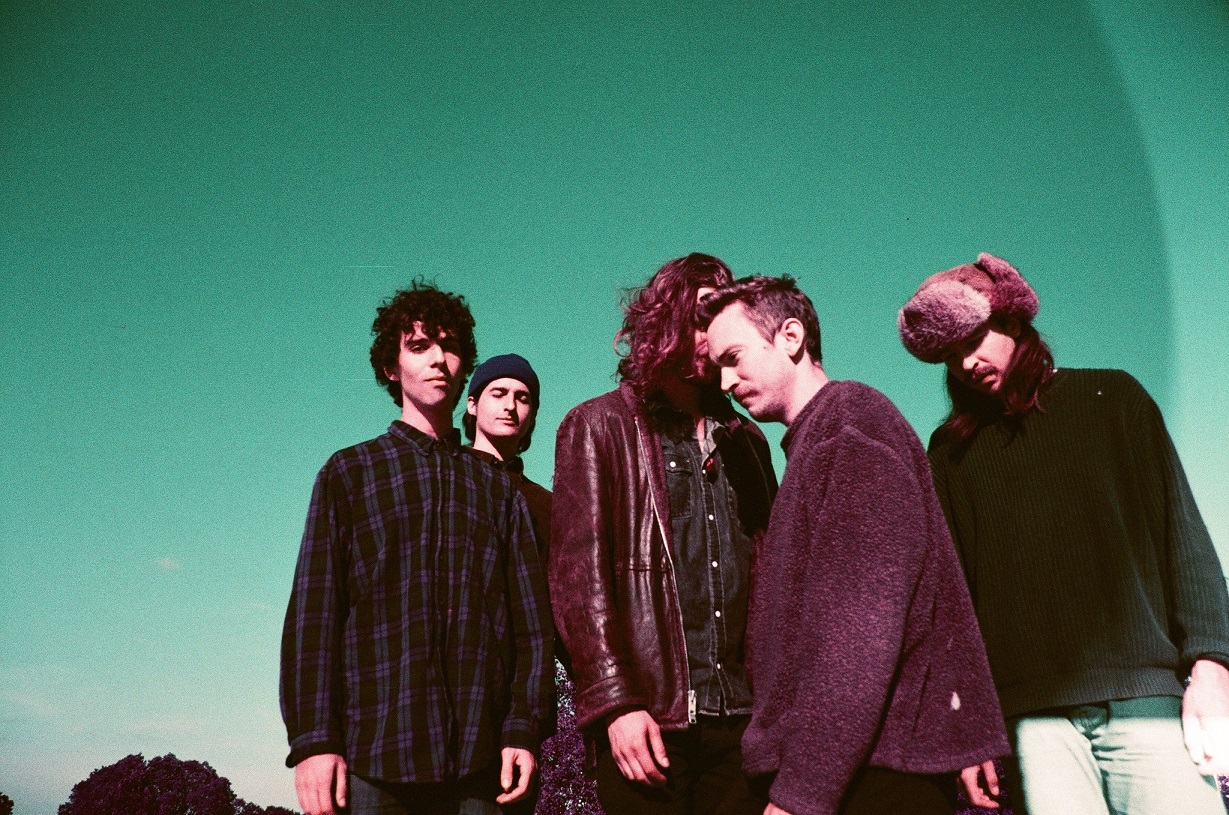With its multiple influences and approach to language, the latest album by Belgium-born Nicolas Michaux is a colourful depiction of life’s realities.
Stream: “Harvesters” – Nicolas Michaux
Amour Colère, the newest album by Belgium-born, Denmark-based artist Nicolas Michaux (released 25 September), is an album that covers multiple ground but keeps you moving at a light, steady pace. The topics are heavy, dealing with all aspects of life, but they’re delivered with a skip in their step. “Cancer”, for example, consists of a wondering baseline, casually energetic drumbeat, and positive rays of guitar, with Michaux singing lines such as ‘J’ai peur du cancer depuis que t’as chopé le tien’, ‘Une tumeur aggressive, plus agressive que ça tu meurs’, and ‘Francois pleure aujourd’hui parce qu’il sait qu’il doit partir’ in a sing-song style way. In “Enemies”, he sings ‘Now my heart is made out of stone/ My flesh is made out of bones/ I’ve never felt so alone/ I’ll never pay off my loans’, upon a slow-moving groove with any atmosphere of loneliness eradicated by the disco element.
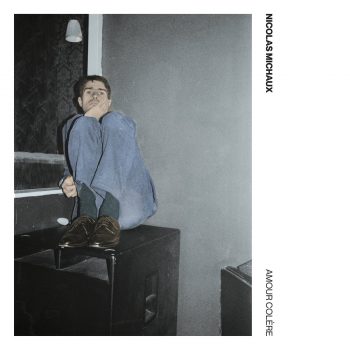
“À Nouveau” consists of affection overpowered by its juxtapositions – ‘Je peux sentir la joie et la peine à nouveau/ Mais le ciel ne m’entend toujours pas’ and ‘Je peux sentir l’amour et la haine à nouveau/ Les étoiles ne brillent pas que pour nous’ – but the instrumentation is dreamy, lethargic in a content way. This is a song that turns to nature, seemingly looking to the sky for guidance and the stars for magic, but nature doesn’t respond. The theme of nature is one present throughout. In “Every Word” it’s used to put emphasis love and the naturalness of feelings, a calming, lo-fi bubbliness layered under Michaux’s yearning vocals.
Every word has a meaning
Every dream is true
And you say that the whole world lies within a grain of rice
The fall of man is in the colour of your eyes
Can you see the wind
Can you hear the sea
Screaming out that I love you
Crying out that I do
Every road has a turning
Every life has an end
But now you’re taking a deep breath on the breast of a misty morning
And tears of joy fall on the moorland of your skin
Do you read the sky
Can you hear the reeds
Singing out that I love you
Crying out that I do
“Every Word,” Nicolas Michaux
It’s a similar approach with “Harvesters,” which was released as a single in April. ‘Got a picture of you where your hair/ Gleans the sky and the meadow/ Got a child that I carry around/ In the tray my barrow/ << This was the nicest day we’ve ever shared >>/ And you’re the richest soil I’ll ever sow’ Michaux sings, chilled-out and atmospheric. The references to nature aren’t just present literally but in sociological sense too. “Factory Town” is like a typical recount of a working class life, with a toe-tapping classic rock kind of rhythm, and the aforementioned “Enemies” which begins with the lines ‘I need my tens and my phone/ But I don’t work for the man/ This rented car is a home/ This can of beer is a friend.’ Then there is the linguistic approach to the record, some written in English and some in French but all with the same sonic incentives of taking from the styles that influence: the ambient (“Harvesters,” “À Nouveau,” the instrumental title track “Amour Colère”), the rock ’n’ roll-leaning (“Factory Town” and “Cancer”), and new wave (“Parrot” and “Enemies”).
J’ai le démon du jeu, tu sais
Je parie toujours sur un cheval mort
Et c’est lourd, c’est lourd, c’est lourd
Et je traîne dans ce bar
Où je chante pour personne
Je veux que tu me donnes
Une seconde chance pour la deuxième fois
Pour la deuxième fois
“Une Seconde Chance,” Nicolas Michaux
Amour Colère is Nicolas Michaux’s sophomore album, a follow-up to the 2016 debut À la vie, à la mort. Unlike the former, which is all in French and consistent in sound, Amour Colère is more varied- a gathering the musical influences condensed into something representative of Michaux. Belgium born and now spending his life between Brussels and the island of Samsø in Denmark, the album stems from a four year period of personal change (Involving becoming a father). As a result, Amour Colère is like a reintroduction to the singer-songwriter and one which, due to the bilingualism, sees him branching out to wider audiences.
— —
Stream: ‘Amour Colère’ – Nicolas Michaux
:: Inside Amour Colère ::
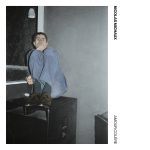
— —
Harvesters
“Harvesters” is the first song I wrote after arriving on Samsø, the Island where I reside with my girlfriend and our daughter Rosa. It was two years ago, springtime was burgeoning and I felt relieved to be able to put down my suitcases after a few years of traveling. I was tired but hoping to recover and was determined to live a simpler life. The song came about quickly in a very spontaneous process. I guess it was just a way to express love and gratitude to my family, to acknowledge the passing of time, and to question the fate of a love story that had to go through a new phase. My humble propitiatory gift. At the time I was very interested in Ayurveda, the traditional vedic biology. Its holistic views on life and the idea that we’re all a unique proportion of the same five elements that constitute the whole universe (the relation between macrocosm and microcosm) must have played a part in the spiritual journey that lead me to write this song. But you never really know what triggers the writing of a song. And it’s better this way. Some things must remain mysterious.
The first demo of the song was recorded with my farfisa rhythmbox and an acoustic guitar. A few months later I took one day to lay down the tracks you can hear on the final recording. My good friend Morgan Vigilante added the drums when he visited me a while later. We shot the video with Alessandro Bertoncini, a young and talented Italian director. Three beautiful summer days spent hanging around the Island, playing with the kid and watching the animals.
À nouveau
I remember starting to write “A Nouveau” at my friend Julien Galoy’s place in Brussels in 2017. He was about to leave his apartment and move to the countryside, the last of many evenings spent in that place putting the world to rights while smoking on the balcony. The end of an era for the two us. At one point when he went to the night shop for some cans, I picked up his acoustic guitar and the first two verses of the song appeared. A few months later, I left Belgium for Denmark. It was in a small flat in Østerbro, Copenhagen, that we rented with Naja, that I finished the song. I unpacked my gear in the perpetually dark living room which overlooked the street. I felt trapped there. I’d look at a large map of the world that was there, drawn on the wall. I was thinking of Françoise Hardy. I was wishing she could sing this song but I think the demo never made it to her. So I kept it for myself. I guess “A Nouveau” speaks of an emotional awakening after having been under extended anesthesia and a longing for union with nature; partial, insufficient connection. A half missed appointment. I really like Morgan’s drumming on this track.
Enemies
I came across “Enemies” in Copenhagen in the fall of 2017 and finished it a year later in Samsø. Initially the text was longer but I refined and condensed it while working on the production of the track. The work on the form helped me to finish the content. I had to work hard to find the right mix between the different elements. I wanted something extremely bare, cut to the bone, and at the same time I wanted the structure to be solid. The text is inspired by the work of the french sociologist Bernard Friot, historian of social security and theorist of the lifetime salary, and also by the social climate in France of the past few years and my own personal experience. When you turn 30 and have a child, being broke becomes less and less fun.
At the time of writing, we were looking for a place to live and the violence of the housing market took me by the throat. “They won’t give you water if you don’t give them money” sings Stanley Brinks; It’s that kind of feeling that was churning my brain when I thought of “Enemies” for the first time. In writing about slavery, Marguerite Yourcenar said that a regime is often most excessive in its cruelty and injustice in its last days. I sometimes get the impression that it’s the same kind of historical scenario we are currently experiencing with the slow agony of capitalism. However I wanted a sense of combat and hope to be found within the song. The battle is not over. I continue to believe in the possibility of a better, less unfair world, a world in which human beings would regain their rightful place as one species among others, living in harmony with their environment. I hope this world will come before it is too late. In the meantime, the only lights around are those of the night.
Parrot
It’s one of the oldest songs on the record but the one I recorded last. I was playing it in concert during the tour of the first album but it took me several years to grasp it and find an arrangement that does it justice. The band that accompanies me on stage, The Soldiers of Love, helped me a lot by suggesting different ideas, and working again and again on different versions. Eventually I produced this final recording alone with Morgan. It’s a kind of compilation of the different versions that have existed over time. But once again the approach was to go back to basics, to remove everything that was not vital and to keep only the rhythm, the song, and the riffs. It’s a slightly obscure and ambiguous song, but by its themes and images I have the impression that it speaks of our time. At the end of the day, it is probably a criticism of myself for being so “wait-and-see” and apathetic in the face of so much misery and injustice. It’s a frontal attack against the conformist and cowardly part that lies in all of us.
Amour Colère
An improvisation based on a few chords discovered on an old synth found in my boxes, the Roland JV 1010. The piece was completed in one evening. Morgan put his drums on top of the rest a few weeks later when he paid me a visit on Samsø. If by some lucky chance people have the idea or desire to make love while listening to this song, it would fill my heart with sincere joy and reassure me about the social utility of my work.
Une Seconde Chance
An old song but I feel like I’ve always had it by my side. Originally some passages in the second verse were weak, which is why it spent so many years in a drawer. I rewrote the parts that bothered me shortly before the sessions on Samsø. I don’t think I could write a song like this today. It’s a work of youth, the work of another self. It’s the classic song about a dude asking his love to take him back even if he has messed up. But these are the kinds of things that touch me: the question of forgiveness, the possibility of love despite failures and missteps. I like its reckless and cheeky mood, the simple and animalistic sensuality.
Factory Town
Co-written with the Scottish singer-songwriter Theo Clark, I came up with the idea for the song but Theo added a powerful imagery that transformed it into something real and tangible. “Factory Town” is a rock’n roll song about the region I grew up in, Liège in Belgium. Liege was the flagship of the metallurgical and mining industry in the 19th and early 20th centuries but experienced a sudden economic crisis at the turn of the 1970s, a bit like the cities in the north of the United Kingdom. I was born on the ruins of a golden age that disappeared a few years before my birth, in a legitimately nostalgic environment. I was lucky to be a teenager around the year 2000. I think it was much harder for the generation before me who grew up in the doldrums of the 90s. The song speaks of this generation, that of my cousins and my brother. These are the landscapes and lives of the Dardenne brothers’ movies. It’s a region to which I am deeply attached.
The song is satirical in certain aspects but I hope that it does not underline the incredible violence done to this soil and to this population. Liège is a very musical city, thanks in particular to the Italian community of which my family is part. The people there love Rock’n Roll a lot. I myself started my career as a musician by opening for a cover band of the Rolling Stones called Bouldou and The Sticky Fingers. “Factory Town” is as much a tribute to them as it is to Lou Reed. Theo Clark, born in Peterborough, now lives in Liège. He released a brilliant record a few years ago. His brother, my dear friend Ted Clark, offered me this incredible bass line you can hear on the final recording.
Cancer
This one’s a brutal song. I can’t always sing it because it requires so much strength and focus. Here as in the other songs, I wanted to stick to reality. In my youth, I saw two close friends die of cancer. I accompanied them and watched them leave. At the time, I didn’t have the words to express so much anger and sadness. Much later, one summer evening, this song came suddenly. I embraced it as it was.
Nos retrouvailles
I began writing this song in 2016 when I first came to Samsø. It was sunny in the tiny courtyard of the house we were renting at the time. I finished it three years later when I returned to the island, and made an acoustic version before producing the one on the album several months later. It’s a bit mysterious, but also well balanced. I hardly feel I wrote it. It was always there, stumbled upon rather than composed. It lends itself to several interpretations and that’s what I like about it. It has more than one voice. Like many of my songs, I feel it should be sung by a woman and not me. It’s perhaps my feminine side which creates, writes, sings. The masculine side cracks open the beer can at the end of the recording.
Every Word
A song written more or less at the same time as “Harvesters” when I returned to the island; a love song for my girlfriend and my daughter and for the landscapes of Samsø as well. Samsø is a place of extreme change. Winter is long, dark and torn by an icy wind. Spring and summer are a wonderful living symphony of flowers, birds and light. Then we go to the beach and live almost exclusively outside to compensate for the winter months spent close to the fireside. And so I have fluctuating feelings about the island. At times I feel at home and I love its wide open spaces, fresh air, and tranquil beauty. At other times, it seems to me terribly hostile and I feel very foreign to it.
I was reading Pablo Neruda’s love poems at the time and it probably helped me to write Every Word. The song came very quickly as a quasi-improvisation. I was having fun playing on a reggae drum loop that I had found on the internet, experimenting a bit with two chords, and the song arrived in an hour or two. I improvised the first verse directly in front of the microphone and it’s still the vocal take you can hear on the album. The sample has been replaced by Morgan’s beautiful drum part.
— —

Connect to Nicolas Michaux on
Facebook, Instagram
Discover new music on Atwood Magazine
? © Alessandro Bertoncini, 2020
Amour Colère
an album by Nicolas Michaux

